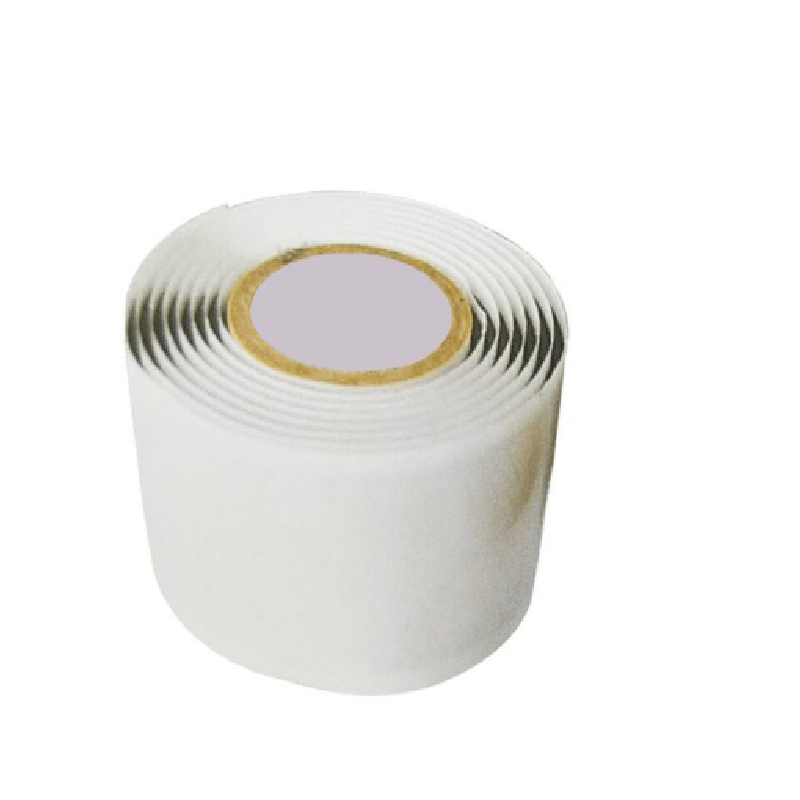Understanding Self-Bonding Electrical Tape A Versatile Solution for Your Electrical Needs
Self-bonding electrical tape is an innovative and versatile product designed for a wide array of electrical applications. Unlike traditional insulating tapes, which require adhesive to adhere to surfaces, self-bonding tapes utilize a unique composition that enables them to stick to themselves without any glue. This characteristic not only makes them easy to use but also enhances their performance, leading to better electrical insulation and protection.
Key Features of Self-Bonding Electrical Tape
1. Self-Adhesive Properties One of the most significant features of self-bonding electrical tape is its ability to adhere to itself. Each layer fuses together when stretched and wrapped around a conductor. This property allows for a secure, tight bond that eliminates the need for adhesives, ensuring a clean finish without the sticky residue that regular tapes often leave behind.
2. Heat and Weather Resistance Self-bonding electrical tapes are typically made from high-performance materials that can withstand extreme temperatures and harsh environmental conditions. This makes them ideal for outdoor applications and environments where exposure to heat, moisture, or UV rays can diminish the effectiveness of standard electrical tape.
3. Electrical Insulation This tape provides excellent dielectric strength, making it a reliable choice for insulating electrical connections and components. It is designed to protect against short circuits and electrical shocks, ensuring safety and reliability in various applications, from household wiring to industrial machinery.
4. Flexibility and Durability The flexibility of self-bonding electrical tape allows it to conform to complex shapes and surfaces, which is crucial when wrapping around irregularly shaped objects or tight spaces. Furthermore, its durable nature ensures that it can withstand wear and tear over time, providing long-lasting protection.
self bonding electrical tape

Applications of Self-Bonding Electrical Tape
Self-bonding electrical tape is suitable for a diverse range of applications, including
- Electrical Wiring It is commonly used for insulating wires and connections, providing protection against moisture and corrosion. - Automotive Repairs Mechanics often employ this tape in vehicles to protect and insulate wiring harnesses, especially in areas exposed to high heat or environmental stress. - Aerospace and Marine Industry Its resistance to extreme conditions makes it an ideal choice for use in aircraft and boats, where reliability is paramount. - HVAC Systems Installing and insulating hoses and ducts can be effectively accomplished using self-bonding tape, contributing to the energy efficiency of heating and cooling systems. Advantages Over Traditional Tapes
While traditional electrical tapes are prevalent, self-bonding electrical tape offers several advantages. The fact that it adheres to itself means no adhesive is necessary, which reduces the risk of sticky residues during removal. Additionally, the superior performance in high-temperature and high-moisture applications makes it a safer and more reliable option for many users.
Conclusion
In conclusion, self-bonding electrical tape is a remarkable innovation in the field of electrical insulation and protection. Its unique properties, including self-adhesion, durability, and environmental resistance, make it an essential tool for electricians, automotive technicians, and DIY enthusiasts alike. As technology continues to advance, the applications and capabilities of self-bonding electrical tape are likely to expand, solidifying its place as a go-to solution for various electrical needs. Whether you're working on a major project or just a simple household repair, self-bonding electrical tape stands out as a versatile and dependable choice that can help ensure safety and efficiency.
-
XIANGFAN Rubber Tape-Ultimate Solutions for All Your Insulation NeedsNewsJun.24,2025
-
XIANGFAN Rubber Tape-Protection for Industrial and Residential ApplicationsNewsJun.24,2025
-
XIANGFAN Rubber Tape: Superior Safety and Sealing for Demanding EnvironmentsNewsJun.24,2025
-
XIANGFAN Rubber Tape: Reliable Solutions for Every Electrical ChallengeNewsJun.24,2025
-
XIANGFAN Electrical & Industrial Tape: Powering Reliability Across IndustriesNewsJun.24,2025
-
XIANGFAN Electrical & Industrial Tape: Excellence in Every ApplicationNewsJun.24,2025
